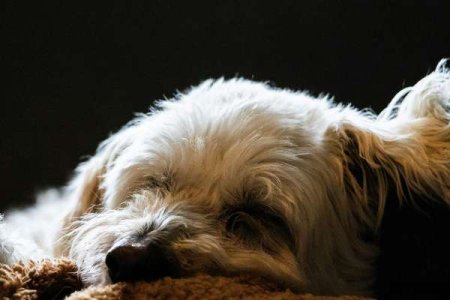What if everything you know about sleep is wrong? How a scientist finally cured his insomnia
- Replies 0
If you’ve ever spent a night staring at the ceiling, counting sheep, or wondering if you’ll ever get a wink of sleep again, you’re not alone.
For decades, we’ve been told that seven to nine hours of uninterrupted slumber is the gold standard—and that anything less spells disaster for our health. But what if we’ve been sold a bedtime story that’s more fiction than fact?
Enter Dr. Merijn van de Laar, a Dutch sleep scientist who not only cured his own chronic insomnia but also uncovered some surprising truths about what really matters when it comes to sleep.
His journey, chronicled in his book How to Sleep Like a Caveman, challenges everything we thought we knew about getting a good night’s rest. So, if you’re tired of being tired—and tired of the guilt that comes with it—read on.
The GrayVine is here to help you rethink your relationship with sleep, with a little help from our prehistoric ancestors.
The Sleep Myth: Do You Really Need 8 Hours?
Let’s start with the big one: the “8-hour rule.” For years, experts have warned that anything less than a solid eight hours could lead to obesity, depression, dementia, and a host of other health woes.
But Dr. van de Laar says it’s time to put that myth to bed. According to him, there’s no sleep loss epidemic, most people don’t need eight hours, and—brace yourself—lying awake at night can be perfectly normal.

In fact, data from the CDC shows that while 14.5% of adults have trouble falling asleep and 18% struggle to stay asleep, the majority of us are doing just fine.
And even if you’re among the 12% of Americans diagnosed with chronic insomnia, there’s hope—without resorting to sleep medications, which Dr. van de Laar warns can actually make things worse.
Lessons from the Caveman: Move More, Sleep Better
So, what’s the secret to better sleep? According to Dr. van de Laar, you need to look back—way back—to our hunter-gatherer ancestors.
Prehistoric humans didn’t have blackout curtains, memory foam mattresses, or white noise machines. What they did have was an active lifestyle.
Research suggests our ancestors walked up to a dozen miles a day—about 19,000 steps for men and 11,000 for women. Compare that to the average American’s 5,000 steps, and it’s no wonder you’re tossing and turning.
Modern science backs this up. Studies show that even modest increases in daily activity—like walking an extra 2,000 steps—can lead to longer, more restful sleep.
And you don’t have to run marathons; even hitting 10,000 steps a day can improve sleep quality, thanks to the mood-boosting endorphins and stress relief that come with movement.
Just remember: try to finish any vigorous exercise at least two hours before bedtime, so your body has time to wind down.

Man’s Best Friend: The Sleep Benefits of Dogs
Here’s a fun fact: our ancestors didn’t just sleep under the stars—they often did so with their canine companions.
Archaeological evidence shows that humans and dogs have been bunking together for tens of thousands of years. And it turns out, sharing your life (and maybe your bed) with a dog can actually help you sleep better.
A 2019 study found that dog owners sleep nearly an hour longer each night than non-owners.
Why? It’s not just the warm, fuzzy cuddles—dog owners tend to be more active during the day, which leads to deeper, more restorative sleep. Plus, dogs provide companionship and reduce feelings of loneliness, both of which are linked to better sleep.
Also read: Get the best sleep of your life tonight with these expert bedtime routine secrets
Eat Like a Caveman: The Paleo Diet and Sleep
What you eat can also play a big role in how well you sleep.
Our ancestors’ diets were rich in animal proteins, vegetables, nuts, and seeds—foods that are now the cornerstone of the Paleo diet. Dr. van de Laar suggests that the high protein content of these diets may help regulate sleep.
Recent research supports this idea. People who eat more protein-rich meals tend to report better sleep quality, and animal studies have found that high-protein diets can increase levels of gut molecules that promote sleep. Swapping out some carbs for lean meats, fish, or plant-based proteins might just help you drift off more easily—and stay asleep longer.
Source: Sebes & Bisseling / Youtube.
Ditch the Clock: Why Time-Tracking Hurts Your Sleep
If you’re the type to check the clock every time you wake up at night, you might be sabotaging your own sleep.
Our ancestors didn’t have alarm clocks or glowing phone screens to remind them of the time. And according to Dr. van de Laar, that’s a good thing.
A recent study from Indiana University found that “time-monitoring behavior”—constantly checking the clock—actually increases anxiety and makes insomnia worse.
The more you worry about how much sleep you’re getting, the harder it becomes to fall back asleep.
Also read: Trouble sleeping? A newly approved device could offer a quiet breakthrough
The solution? Remove visible clocks from your bedroom, and keep your phone out of reach. Trust your body’s natural rhythms, and let go of the pressure to hit a magic number.
The Real Secret: Embrace Your Unique Sleep Needs
Perhaps the most important lesson from Dr. van de Laar’s research is that there’s no one-size-fits-all approach to sleep.
Some people thrive on six hours, while others need nine. Some sleep straight through the night, while others wake up for a bit and then drift back off. And that’s okay.
Instead of chasing perfection, focus on what makes you feel rested and energized. Move your body, eat well, spend time with loved ones (furry or otherwise), and let go of the guilt if your sleep doesn’t look like the textbook ideal.
Read next: Tired of restless nights? Try these 4 natural, caveman-inspired sleep tips

Have you found a sleep routine that works for you? Do you have tips for winding down at night, or stories about how a pet improved your rest? Share your experiences, questions, and advice in the comments below!
For decades, we’ve been told that seven to nine hours of uninterrupted slumber is the gold standard—and that anything less spells disaster for our health. But what if we’ve been sold a bedtime story that’s more fiction than fact?
Enter Dr. Merijn van de Laar, a Dutch sleep scientist who not only cured his own chronic insomnia but also uncovered some surprising truths about what really matters when it comes to sleep.
His journey, chronicled in his book How to Sleep Like a Caveman, challenges everything we thought we knew about getting a good night’s rest. So, if you’re tired of being tired—and tired of the guilt that comes with it—read on.
The GrayVine is here to help you rethink your relationship with sleep, with a little help from our prehistoric ancestors.
The Sleep Myth: Do You Really Need 8 Hours?
Let’s start with the big one: the “8-hour rule.” For years, experts have warned that anything less than a solid eight hours could lead to obesity, depression, dementia, and a host of other health woes.
But Dr. van de Laar says it’s time to put that myth to bed. According to him, there’s no sleep loss epidemic, most people don’t need eight hours, and—brace yourself—lying awake at night can be perfectly normal.

Dutch sleep scientist Dr Merijn van de Laar says most people do not actually need eight hours of sleep, and waking in the night can be perfectly normal. Image source: Big Dodzy / Unsplash.
In fact, data from the CDC shows that while 14.5% of adults have trouble falling asleep and 18% struggle to stay asleep, the majority of us are doing just fine.
And even if you’re among the 12% of Americans diagnosed with chronic insomnia, there’s hope—without resorting to sleep medications, which Dr. van de Laar warns can actually make things worse.
Lessons from the Caveman: Move More, Sleep Better
So, what’s the secret to better sleep? According to Dr. van de Laar, you need to look back—way back—to our hunter-gatherer ancestors.
Prehistoric humans didn’t have blackout curtains, memory foam mattresses, or white noise machines. What they did have was an active lifestyle.
Research suggests our ancestors walked up to a dozen miles a day—about 19,000 steps for men and 11,000 for women. Compare that to the average American’s 5,000 steps, and it’s no wonder you’re tossing and turning.
Modern science backs this up. Studies show that even modest increases in daily activity—like walking an extra 2,000 steps—can lead to longer, more restful sleep.
And you don’t have to run marathons; even hitting 10,000 steps a day can improve sleep quality, thanks to the mood-boosting endorphins and stress relief that come with movement.
Just remember: try to finish any vigorous exercise at least two hours before bedtime, so your body has time to wind down.

Following the lifestyle of our prehistoric ancestors—being more active during the day, such as walking 10,000+ steps, and eating a protein-rich Paleo-style diet—may help improve sleep quality. Image source: Dawn Casey / Unsplash.
Man’s Best Friend: The Sleep Benefits of Dogs
Here’s a fun fact: our ancestors didn’t just sleep under the stars—they often did so with their canine companions.
Archaeological evidence shows that humans and dogs have been bunking together for tens of thousands of years. And it turns out, sharing your life (and maybe your bed) with a dog can actually help you sleep better.
A 2019 study found that dog owners sleep nearly an hour longer each night than non-owners.
Why? It’s not just the warm, fuzzy cuddles—dog owners tend to be more active during the day, which leads to deeper, more restorative sleep. Plus, dogs provide companionship and reduce feelings of loneliness, both of which are linked to better sleep.
Also read: Get the best sleep of your life tonight with these expert bedtime routine secrets
Eat Like a Caveman: The Paleo Diet and Sleep
What you eat can also play a big role in how well you sleep.
Our ancestors’ diets were rich in animal proteins, vegetables, nuts, and seeds—foods that are now the cornerstone of the Paleo diet. Dr. van de Laar suggests that the high protein content of these diets may help regulate sleep.
Recent research supports this idea. People who eat more protein-rich meals tend to report better sleep quality, and animal studies have found that high-protein diets can increase levels of gut molecules that promote sleep. Swapping out some carbs for lean meats, fish, or plant-based proteins might just help you drift off more easily—and stay asleep longer.
Source: Sebes & Bisseling / Youtube.
Ditch the Clock: Why Time-Tracking Hurts Your Sleep
If you’re the type to check the clock every time you wake up at night, you might be sabotaging your own sleep.
Our ancestors didn’t have alarm clocks or glowing phone screens to remind them of the time. And according to Dr. van de Laar, that’s a good thing.
A recent study from Indiana University found that “time-monitoring behavior”—constantly checking the clock—actually increases anxiety and makes insomnia worse.
The more you worry about how much sleep you’re getting, the harder it becomes to fall back asleep.
Also read: Trouble sleeping? A newly approved device could offer a quiet breakthrough
The solution? Remove visible clocks from your bedroom, and keep your phone out of reach. Trust your body’s natural rhythms, and let go of the pressure to hit a magic number.
The Real Secret: Embrace Your Unique Sleep Needs
Perhaps the most important lesson from Dr. van de Laar’s research is that there’s no one-size-fits-all approach to sleep.
Some people thrive on six hours, while others need nine. Some sleep straight through the night, while others wake up for a bit and then drift back off. And that’s okay.
Instead of chasing perfection, focus on what makes you feel rested and energized. Move your body, eat well, spend time with loved ones (furry or otherwise), and let go of the guilt if your sleep doesn’t look like the textbook ideal.
Read next: Tired of restless nights? Try these 4 natural, caveman-inspired sleep tips
Key Takeaways
- Dutch sleep scientist Dr Merijn van de Laar says most people do not actually need eight hours of sleep, and waking in the night can be perfectly normal.
- Following the lifestyle of our prehistoric ancestors—being more active during the day, such as walking 10,000+ steps, and eating a protein-rich Paleo-style diet—may help improve sleep quality.
- Sleeping with a dog may offer benefits, as dog owners tend to be more active and report getting nearly an extra hour of sleep per night.
- Watching the clock or using tech in the bedroom can worsen insomnia, so it’s recommended to remove clocks and mobile phones to reduce stress and aid better sleep.
Have you found a sleep routine that works for you? Do you have tips for winding down at night, or stories about how a pet improved your rest? Share your experiences, questions, and advice in the comments below!






